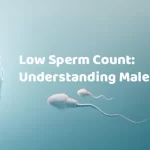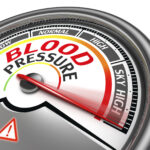Understanding Loss of Appetite
Thinking of what lack of appetite causes? A loss of appetite is a symptom that can arise from various underlying causes and is characterized by a decreased desire to eat. When someone experiences this condition, they may find that they no longer feel hungry or motivated to consume food.
The medical term for this phenomenon is anorexia, which should not be confused with the eating disorder anorexia nervosa, a serious mental health condition involving self-starvation and extreme weight loss.
Addressing and treating the root cause of a loss of appetite is essential for regaining a healthy relationship with food and improving overall well-being.
What Does a Loss of Appetite Mean?
A loss of appetite manifests when individuals find themselves lacking the desire to eat, which can lead to several observable behaviors and feelings, such as:
- Feeling Full: Individuals may have the sensation of being full even when they haven’t eaten.
- Food Aversion: There may be a noticeable disinterest in the taste, sight, or smell of food, which can result in an aversion to meals and dining experiences.
- Social Withdrawal: Those experiencing a loss of appetite might prefer to eat alone rather than share meals with others, leading to potential social isolation.
The onset of appetite loss can vary; it may occur suddenly or develop gradually over an extended period. It is generally considered a cause for concern if this symptom persists for more than a week.
Additional Symptoms
In addition to the primary symptom of reduced appetite, individuals may experience other related symptoms that can further indicate the need for medical evaluation. These additional symptoms may include:
- Fatigue or Low Energy: A general feeling of tiredness or lethargy can accompany a loss of appetite, making daily activities more challenging.
- Nausea or Vomiting: Digestive discomfort, including feelings of nausea or episodes of vomiting, can also be present, further discouraging eating.
- Muscle Weakness: Individuals may notice a decline in strength or stamina, which can be concerning and may impact physical activities.
- Changes in Bowel Habits: This could manifest as constipation or diarrhea, which may be linked to dietary changes or underlying health issues.
- Alterations in Skin, Hair, or Nails: Physical changes such as dryness, brittleness, or other noticeable variations in the skin, hair, or nails can signal nutritional deficiencies or other health concerns.
Recognizing the signs and symptoms associated with a loss of appetite is crucial. If you or someone you know is experiencing this condition, especially if it persists for an extended period, seeking medical advice can help identify any underlying issues and guide appropriate treatment.
Difference Between a Loss of Appetite and Anorexia
The term anorexia is used medically to describe a loss of appetite, which is characterized by a diminished desire to eat. However, it’s important to distinguish this from the eating disorder known as anorexia nervosa. Individuals with a loss of appetite (anorexia) do not feel hungry and, as a result, lack the urge to eat.
In contrast, a person with anorexia nervosa may still experience feelings of hunger but chooses to restrict their food intake due to a distorted body image or an intense fear of gaining weight.
Therefore, while both conditions involve a reduced desire to eat, the motivations and underlying feelings differ significantly.
Signs of a Loss of Appetite
Recognizing a loss of appetite can be crucial for identifying potential health issues. Some common signs that you may be experiencing a loss of appetite include:
- Little to No Interest in Food: A marked disinterest in meals or snacks that were once enjoyable.
- Avoiding Favorite Foods: Not feeling inclined to eat foods that you typically love or crave.
- Missing Meals: Frequently skipping meals or not feeling compelled to eat at regular intervals.
- Weight Changes: Noticeable fluctuations in weight, whether it be weight loss or in some cases, weight gain due to emotional eating.
Possible Causes of Loss of Appetite
There are various factors that can lead to a loss of appetite, which can be broadly categorized into physical, emotional, and medical causes.
Common Causes of a Loss of Appetite
- Physical Changes: Physical factors that may contribute to a loss of appetite include:
-
- Pain: Chronic pain or discomfort can diminish the desire to eat.
- Dehydration: Lack of adequate fluids can lead to feelings of fullness and reduce hunger signals.
- Dental Issues: Problems with teeth or gums, such as pain or difficulty chewing, can deter eating.
- Injury: Physical injuries may affect mobility or create discomfort that impacts appetite.
- Loss of Taste or Smell: Changes in these senses can lead to reduced enjoyment of food.
- Post-Surgery Recovery: Recovery from surgical procedures can alter appetite levels.
- Emotional and Psychological Factors: Your mental state significantly influences your desire to eat. Emotional causes of a loss of appetite may include:
-
- Anxiety: Heightened anxiety levels can lead to nausea and a reduced desire for food.
- Eating Disorders: Conditions like anorexia nervosa or bulimia may involve an altered relationship with food.
- Emotional Reactions: Experiences of grief, fear, sadness, or shock can temporarily suppress appetite.
- Depression: Feelings of hopelessness or low mood are often linked to reduced interest in food.
- Stress: Chronic stress can disrupt normal eating patterns and lead to appetite loss.
- Underlying Health Conditions: Various medical conditions can affect appetite. Some common health issues that may lead to a loss of appetite include:
-
- Common Cold or Flu: Illness can lead to temporary appetite changes.
- Infections: Conditions like urinary tract infections or gastrointestinal infections can reduce hunger.
- Cancer: Cancer and its treatments can significantly impact appetite.
- Dementia: Cognitive decline can affect the ability to recognize hunger cues.
- Diabetes: Blood sugar fluctuations can influence feelings of hunger.
- Food Poisoning: Illness from contaminated food can result in nausea and a desire to avoid eating.
- Chronic Diseases: Heart, lung, kidney, or liver diseases can lead to appetite suppression.
- HIV and AIDS: These conditions may cause significant changes in appetite and weight.
- Hypothyroidism: An underactive thyroid can alter metabolism and hunger signals.
Understanding the various factors that contribute to a loss of appetite can help in identifying underlying issues and determining appropriate treatment or intervention.
If you or someone you know is experiencing a persistent loss of appetite, it is advisable to seek medical attention to address any potential concerns.
Medications That Can Cause a Loss of Appetite
A loss of appetite can sometimes be a side effect of various medications or supplements prescribed to manage underlying health conditions. Some common medications known to contribute to appetite suppression include:
- Antibiotics: These medications, which are used to treat bacterial infections, can disrupt gut flora and affect appetite.
- Amphetamines: Often prescribed for attention deficit hyperactivity disorder (ADHD) or as weight-loss medications, these stimulants can lead to decreased hunger.
- Chemotherapy Drugs: Patients undergoing cancer treatment may experience a loss of appetite due to the side effects of chemotherapy.
- Digoxin: Used to treat heart conditions, digoxin can sometimes impact appetite as a side effect.
- Fluoxetine: This selective serotonin reuptake inhibitor (SSRI) is commonly prescribed for depression and anxiety, and it can also affect appetite.
- Hydralazine: A medication used to manage high blood pressure, hydralazine may lead to reduced appetite in some individuals.
- Opioids: These pain-relieving medications are known to cause nausea and may lead to a decrease in appetite.
Care and Treatment for Loss of Appetite
Treating a loss of appetite largely depends on identifying and addressing the underlying cause. Your healthcare provider may conduct diagnostic tests, such as blood work or imaging, to determine the reasons behind your symptoms. Treatment options may include:
- Regular Small Meals: Eating small, frequent meals throughout the day can help stimulate appetite and make it easier to consume sufficient nutrition.
- Managing Underlying Conditions: Properly addressing any illnesses, infections, or medical conditions that may be contributing to appetite loss is essential for recovery.
- Appetite-Stimulating Medications: Your healthcare provider may prescribe medications known to stimulate appetite, such as low-dose corticosteroids, cyproheptadine, megestrol acetate, or dronabinol.
- Intravenous Nutrients: In cases of severe appetite loss or malnutrition, receiving intravenous (IV) nutrients, which include liquid vitamins and minerals administered through a vein, may be necessary.
- Mental Health Support: Consulting with a mental health specialist can be beneficial if your eating habits are irregular due to emotional or psychological factors.
- Medication Adjustments: If medications are found to contribute to appetite loss, your provider may adjust the dosage or switch you to a different medication that has fewer side effects.
- Dietitian Consultation: Meeting with a registered dietitian can help you develop a personalized eating plan to manage your appetite and nutritional intake.
- Vitamins and Supplements: Taking vitamins or dietary supplements as recommended by your healthcare provider may help support overall health and appetite.
- Dental Care: If dental problems or tooth pain are affecting your desire to eat, visiting a dentist for evaluation and treatment is important.
When the underlying cause of appetite loss is treated or resolved, you should expect your appetite to return to normal. However, if your appetite does not improve after recovering from an illness, injury, or infection, it is important to follow up with your healthcare provider for further evaluation and assistance.
Home Remedies for Treating a Loss of Appetite
If you’re experiencing a loss of appetite, there are several strategies you can try at home to help stimulate your hunger and ensure you’re getting the nutrients you need:
- Eat Regular Meals: Even if you’re not feeling hungry, try to maintain a routine by eating small meals at regular intervals throughout the day. Aim for three small meals—breakfast, lunch, and dinner—to provide your body with consistent nourishment.
- Opt for Liquid Meals: If solid foods seem unappealing, consider consuming your daily caloric intake through liquid meals. Options like soup broths, smoothies, fruit juices, or electrolyte-rich sports drinks can be easier to digest and may help you stay hydrated. Always follow your healthcare provider’s recommendations when incorporating liquid meals.
- Choose Bland Foods: When your appetite is low, bland foods can be gentler on your stomach. These foods are typically soft, low in fiber, and easy to digest. Consider incorporating unseasoned meats, dairy products, vegetables, potatoes, breads, and crackers into your meals, avoiding spicy or fried foods that may irritate your digestive system.
- Focus on Nutrient-Dense Foods: Incorporate foods that are high in protein, vitamins, and minerals to quickly replenish any missing nutrients. Options include eggs, yogurt, nuts, seeds, lean meats, and leafy greens.
- Schedule Meals with Family or Friends: Eating with others can create a supportive atmosphere that encourages you to eat. Having a social meal can help lift your spirits and stimulate your appetite.
Side Effects of a Loss of Appetite
A persistent loss of appetite can lead to serious health consequences, including:
- Malnutrition: Inadequate caloric intake can result in nutrient deficiencies, weakening your body’s systems.
- Weight Loss: Unintentional weight loss can occur, leading to further health complications.
- Decreased Energy Levels: A lack of essential nutrients can leave you feeling fatigued and low in energy.
- Weakened Immune System: Insufficient nutrition can impair your immune response, making you more susceptible to infections.
- Life-Threatening Conditions: If caloric intake continues to decline, it can pose significant risks to your overall health and may become life-threatening.
Preventing a Loss of Appetite
Given the many potential causes of a loss of appetite, prevention can be challenging. However, you can take proactive steps to reduce your risk, such as:
- Manage Underlying Conditions: Stay on top of any existing medical conditions and work with your healthcare provider to ensure they are well-managed.
- Discuss Medication Side Effects: If you are prescribed medications, have an open conversation with your provider about their potential side effects, including any impact on your appetite.
- Avoid Skipping Meals: Make it a priority to eat regularly, even if you don’t feel particularly hungry. Skipping meals can exacerbate appetite loss.
- Engage in Regular, Light Exercise: Participating in gentle physical activity, such as walking or stretching, can help stimulate appetite and improve overall well-being.
By implementing these strategies, you may find it easier to cope with a loss of appetite and maintain your nutritional health. If your loss of appetite persists or worsens, consider seeking professional medical advice for further evaluation and support.
When to Call the Doctor
It’s essential to consult a healthcare provider if you experience a loss of appetite that leads to any of the following:
- Persistent Symptoms: If your loss of appetite lasts for more than one week without improvement, it’s crucial to seek medical attention.
- Sudden Weight Loss: Unexpected weight loss can indicate underlying health issues and should be evaluated by a professional.
- Accompanying Symptoms: If you experience additional symptoms such as fatigue, weakness, nausea, a rapid heart rate, or irritability alongside your loss of appetite, it’s important to reach out to your healthcare provider.
A prolonged or sudden loss of appetite can signal a significant health concern. If you find yourself lacking appetite, don’t hesitate to contact your provider for further evaluation.
Additional Common Questions
Can CBD Cause a Loss of Appetite?
Yes, one of the potential side effects of CBD (cannabidiol) is a loss of appetite. CBD is a compound derived from the sativa plant, commonly known as cannabis or marijuana. Unlike THC (tetrahydrocannabinol), which is responsible for the psychoactive effects associated with marijuana, CBD does not produce a “high.” However, it can still influence appetite in some individuals, leading to decreased hunger.
Is Loss of Appetite a Sign of Pregnancy?
Experiencing a loss of appetite is common during the first trimester of pregnancy. As the body undergoes various changes to support fetal development, you may notice alterations in your eating habits.
Factors such as nausea or vomiting (often referred to as morning sickness) can impact your desire to eat, leading to aversions to certain foods or a general lack of hunger for meals you once enjoyed.
While these changes are typically normal, if your loss of appetite prevents you from consuming the necessary nutrients for both you and the developing fetus, it’s important to consult your healthcare provider for guidance and support.
Conclusion
A loss of appetite can be a concerning symptom with various underlying causes, ranging from physical and emotional factors to medication side effects. It is crucial to recognize the signs and seek medical attention if the loss of appetite persists for more than a week, leads to sudden weight loss, or is accompanied by additional symptoms like fatigue and nausea.
At home, individuals can adopt strategies such as eating small, regular meals, opting for liquid nutrition, and focusing on bland, nutrient-dense foods to stimulate their appetite. However, if the loss of appetite is tied to underlying health issues, effective treatment and management are essential for recovery.
Moreover, understanding potential causes—such as the impact of CBD or pregnancy-related changes—can help individuals navigate their experiences with appetite loss.
Ultimately, addressing appetite changes promptly with the guidance of healthcare professionals is vital for maintaining overall health and well-being.
What are the pros and cons of a vegan diet?
How Do You Feel When Your Sugar Is Low?

A graduate of Computer Science and Information Management Technology. Diploma – Caregiving, Certificates – Dementia and Diabetes Awareness and Management. A researcher, blogger, songwriter, singer and acoustic guitarist. Born in an environment where natural talents such as healing are imparted at our natural birth. This natural talents of healing is the result of our genetic inheritance and the training from family environment.













